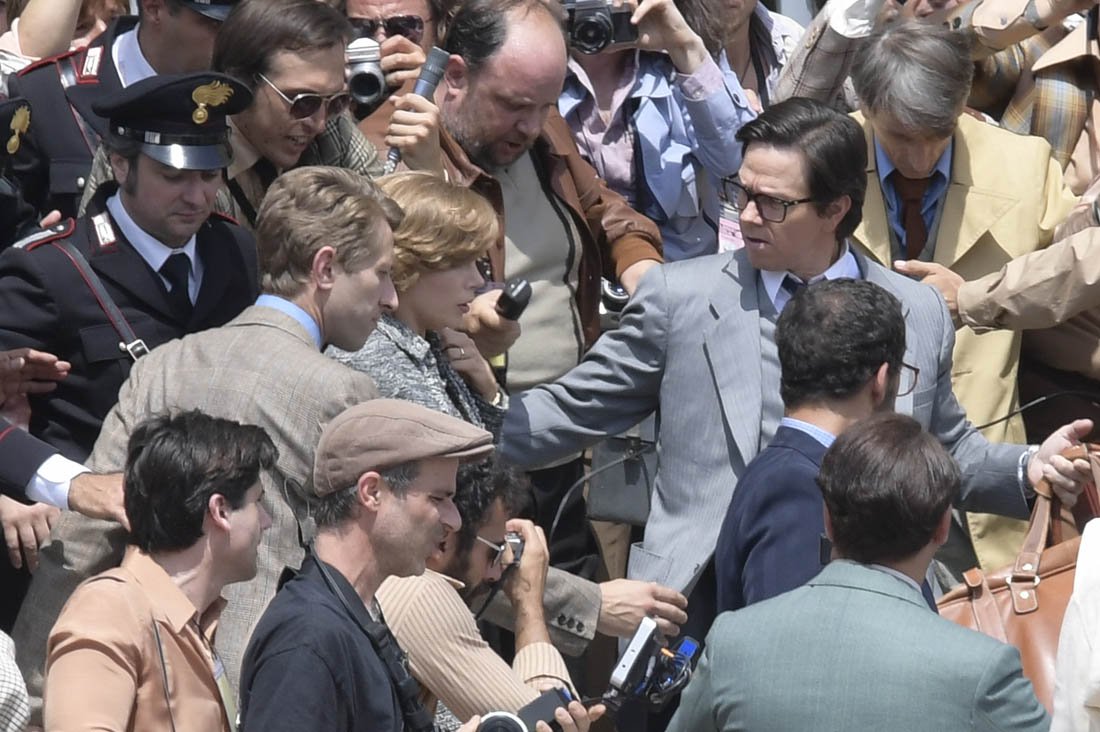The Getty family comes pretty close to royalty for the United States. J. Paul Getty is the patriarch of the family, getting his money from the oil industry in Saudi Arabia. All the Money in the World shows the lengths the super rich Getty goes to just to maintain his money, even when his grandson gets kidnapped.
John Paul Getty III (Charlie Plummer) was just walking through Rome, having a blast, when masked men in a van capture him and take him to southern Italy. Knowing he is an heir to the Getty fortune, they call his mother Gail Harris (Michelle Williams) to demand she get the millions of dollars from her father in law, the original J. Paul Getty (Christopher Plummer). Getty, however, is not exactly keen to give away his money, so he taps Fletcher Chase (Mark Wahlberg), master negotiator, to find a way to get his grandson back without spending his money.
Director Ridley Scott smartly shoots All the Money in the World from Gail Harris’s point of view (we also get the grandkid’s point of view, but those scenes are really boring). Gail, unfortunately, has to negotiate with the kidnappers, but even more creatively with her father-in-law and his top negotiator. The sad reality of All the Money in the World is that the kidnappers are more realistic than J. Paul Getty. For people who have not spent any time around or researched rich people, Scott posits that rich people only see anything in terms of dollars, but to an obsessive extreme. When it comes to their dollars, every price is inflated and every conversation leads back to how much money they saved or screwed someone out of. But to outsiders, they always are trying to low ball the real value so they can lose as little money as possible. These arguments can border on illogical. When Gail asks Getty to pay the ransom for her grandson, Getty says no because then everyone will be kidnapped around him, just a ludicrous thought since his grandson was galavanting with his family name around seedy people. As the negotiation goes for Gale, she keeps being backed into corners not by the kidnappers, but by Getty himself. In a heartbreaking scene, Getty brings back his deadbeat son whom he cut off to let Gail raise his grandkids right. Why does he do this? So Getty can get ownership of his grandkids after he pays the ransom. The levels of rich Getty gets to turns his brain paranoid and forces him to only think in terms of dollars and cents, even with his own family.
Famously, Kevin Spacey was playing J. Paul Getty in this film. However, he kinda dug himself a pit to hell, so Ridley Scott, in 6 weeks, replaced Spacey with Christopher Plummer. This will be an interesting what if, but it’s hard to argue with the decision. Plummer is by far the best thing in All the Money in the World. He gives Getty instantaneous gravitas and a dose of cold menace. Gail’s negotiations with Plummer are much more terrifying due to Plummer’s performance. Wahlberg seems like he was hired to execute the dressing down scene coming to Getty as Fletcher becomes more aware of just how much of a monster Gettty is. He’s fine. Michelle Williams modulates as our anchor to the story, and she’s more than capable. We feel the pressure and frustration mount for Gail as all she wants to do is get her family back. Romain Duris and Charlie Plummer do what they can with their Stockholm Syndrome situation, but those scenes are boring until the cinematic end to them.
All the Money in the World will be more famous as a story about the Spacey replacement than the movie itself. The movie on its own terms is frustrating; personally, I would have pushed back the date, hired, Plummer, and only told the story through Gail and Getty’s point of view, because of how lecherous the story gets. However, that would mean I have to spend more time with a super rich a**hole, which I would not want to do. Though his comeuppance at the end will leave you very satisfied.

